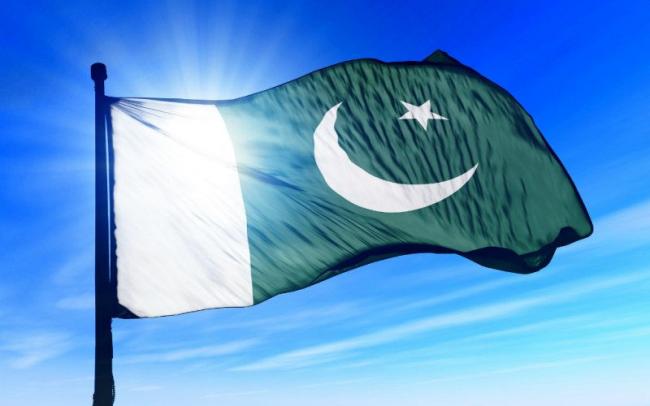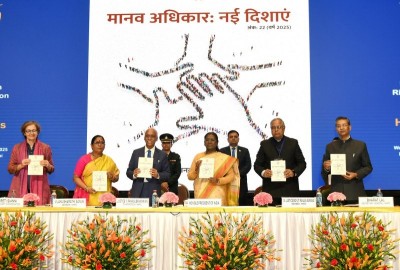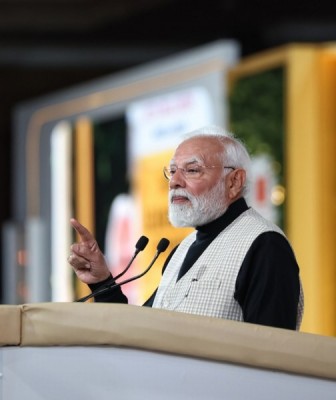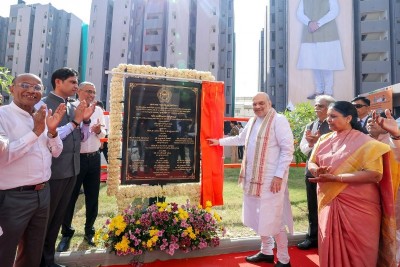
Contentious Border
On October 14, 2018, Security Forces(SFs) of Pakistan and Afghanistan exchanged fire along the border in the Tandah Dara Sarochahan area of Qilla Abdullah District in Balochistan Province.Afghan media claimed three Pakistani soldiers were killed in the clashes that lasted for several hours, although the Pakistan military denied this claim.Pakistani officials, however, confirmed the incident and claimed Afghan troops opened fire on Pakistani personnel who were erecting a fence along the border in the area. After the incident, Pakistani border authorities closed the Friendship Gate near Chaman, leaving thousands of people stranded on both sides of the Pak-Afghan border.
On October 2, 2018, seven terrorists were killed and three others injured in an exchange of fire between militants inside Afghanistan and Pakistani SFsdeployed at a check-post in North Waziristan District of Khyber Pakhtunkhwa (KP)[formerly of the Federally Administered Tribal Areas (FATA), which merged with KP on May 31, 2018]. According to a statement issued by the Inter-Services Public Relations (ISPR), terrorists from across the Afghan border engaged in a 'fire raid' at the check-post, prompting army officials to quickly retaliate. Military sources say that, due to the extensive fencing along the border, terrorists cannot physically attack posts and now resort to 'fire raids' — concerted targeting of Pakistani assets from a distance.
On June 24, 2018, a Pakistan Army soldier, identified as Sepoy Niaz Ali, was killed in an exchange of fire between militants inside Afghanistan and Pakistani SFsdeployed at a check-post in the North Waziristan District of KP.
On June 15, 2018, five terrorists and three Army soldiers were killed during action when militants from across the Pak-Afghan border attempted multiple raids on Pakistani posts in the Shawal area of the North Waziristan District in KP. According to ISPR, SFs repulsed the attempts to overrun posts and inflict major damage.
On June 3, 2018, SFs repulsed attacks from across the Pak-Afghan border in the Bajaur District in KP. ISPR disclosed that the attacks targeted border posts and border fencing parties. SF personnel had foiled seven infiltration attempts in the Bajaur area alone during the preceding 24 hours. An ISPR Press Release stated,
Four security personnel and a soldier of the Pakistan Air Force, deployed at an observation post, got injured during the exchange of fire… Taking advantage of ungoverned spaces and [with] facilitation [from] inside Afghanistan, terrorists are resorting to such attacks to prevent fencing and construction of border posts.
On May 13, 2018, at least six Pakistan Army personnel, including a junior commissioned officer, were killed and another injured in a terrorist attack near the Afghan border in the Shawal Valley area of the North Waziristan District in KP. Security officials stated that members of the Bomb Disposal Squad (BDS) were clearing a road near the Afghan border for SFs, when a group of militants from Afghanistan's Paktika Province ambushed them.
In between, in a related incident, on September 22, 2018, nine militants and seven soldiers, including an Army Captain, were killed in an exchange of fire between militants who infiltrated from the Afgha side and Pakistani SFs,during an intelligence-based operation in the Gharlamai area of North Waziristan District in KP. A statement issued by the ISPR said that a group of “terrorists was reported to have infiltrated from across and was hiding in a compound” in Gharlamai area.
According to partial data compiled by the South Asia Terrorism Portal (SATP), there have been 10incidents of firingfrom the Afghan side of the border,in which 30 militants (21 in Afghanistan and nine in Pakistan) and 23 Pakistani SF personnel (all in Pakistan)have been killed in the current year (data till October 21, 2018). The whole of 2017 had recorded 16 incidents of cross-border engagements in which 35 militants (all in Afghanistan), 15 Pakistani SF personnel (all in Pakistan) and 11 civilians(all in Pakistan) were killed.
In a series of tweets posted on his official account, ISPR Director General (DG) Major General Asif Ghafoor had,however,disclosed, on November 13, 2017, that there had been an increasing trend of cross-border attacks on Pakistani posts from Afghanistan. Almost 308 such attacks had taken place in 2017, the highest number since 2012, when 324 attacks were reported. On an average there have been 248 attacks every year since 2012. About 29 soldiers have been killed in the attacks between 2012-17.
The problem, however, is far more acute in Afghanistan, with Pakistan-based terrorist formations dominating vast regions and continuously executing a barrage of terrorist and militant attacks on Afghan soil, both against SFs and civilians. According to the United Nations Assistance Mission (UNAMA) Mid Year Report released on July 15, 2018, for instance, the number of civilians killed in Afghanistan hit a record high in the first half of 2018, with 1,692 civilian fatalities – the highest recorded in the same time period in any year over the last decade since the agency began documenting civilian casualties in 2009. There were 1,672 civilian deaths in 2017, 1644 in 2016 and 1615 in 2015 in the same time period.
Kabul has, for long, held Pakistan responsible for violence inside Afghanistan. Most recently, subsequent to emergence of reports stating that militants who participated in Ghazni attack retreated to Pakistan and were taking treatment there, Afghanistan President Ashraf Ghani on August 27, 2018, stated
General Bajwa [Pakistan Army Chief General Qamar Javed Bajwa], you signed a document with us and told me repeatedly in our conversations over the phone that when the elections [in Pakistan] are over you will pay attention to it. I need answers now... From where they came and why are they receiving treatment in your hospitals?
The Taliban assaulted Ghazni, the capital of the province also called Ghazni, a week earlier and over the subsequent days of clashes reportedly killed an estimated 500 people, including SF personnel, insurgents and civilians. The Afghan military at the time had alleged foreign militants, including Arabs, Chechens and Pakistanis participated in the fighting.
Earlier, unveiling his South Asia Policy, US President Donald Trump had noted on August 21, 2017,
…The next pillar of our new strategy is to change the approach and how to deal with Pakistan. We can no longer be silent about Pakistan's safe havens for terrorist organizations, the Taliban, and other groups that pose a threat to the region and beyond. Pakistan has much to gain from partnering with our effort in Afghanistan. It has much to lose by continuing to harbour criminals and terrorists…
Nevertheless, Kabul rejects the Pakistani fencing exercise. Pakistan and Afghanistan has a contentious border. The conflict over the legitimacy of the Durand Line – the border imposed by Imperial Britain – between Pakistan and Afghanistan is more than a century old. The Durand Line, named after British diplomat Mortimer Durand, was drawn in 1893 as the international border between British India and Afghanistan in an agreement with Afghan ruler Abdur Rahman Khan. No Afghan Government has accepted the border since the creation of Pakistan in 1947, on the grounds that the agreement with the British lapsed after their withdrawal from their Indian empire, and because it divides the Pashtun ethnic homeland and tribal communities living on both side of the border. These tribal populations are accustomed to moving back and forth freely and, in some cases, own land on both sides of the border.
In September 2005, Pakistan announced for the first time that it had plans to build a 2,611-kilometre fence (1,230km in KP and 1,381km in Balochistan) along its border with Afghanistan, purportedly to check armed militants and drug smugglers moving between the two countries. But Afghanistan raised objections on the grounds that this was an attempt to make the disputed border permanent. Over a year later, on December 26, 2006, Pakistan again declared its plans for mining and fencing the border, but was again opposed by the Afghanistan Government. The then President Hamid Karzai on December 28, 2006, said the moves would only hurt the people living in the region and would not stem cross-border terrorism.
The erstwhile South Waziristan Agency of FATA saw escalating a border skirmishes in April 2007, among the first reported between SFs of both the countries after Pakistan had initiated border fencing. Pakistani SFs operating in South Waziristan made a three-tier security deployment on April 11, 2007, to stop cross-border infiltration by militants from Afghanistan. Pakistan fenced 12-kilometers of its border stretch with Afghanistan to ‘choke off’ cross-border infiltration, but Afghan troops tore down the fence on April 19, 2007, leading to a gun-battle, though there were no casualties.
Between 2007 and 2013, Pakistan’s border fencing plans were not implementedfully due to internal terrorist violence and numerous Army operations in tribal areas. However,in 2011, s 35 kilometre (22 miles) long portion along selected border areas was fenced. However, the work was discontinued for lack of funds. On June 23, 2011, the then ISPR DG Major General Athar Abbas, disclosed: "We did fence around 35km of the border area as it faced continuous militant incursions. It was a joint project of ISAF (International Security Assistance Force) and Afghanistan. But then they backed out. It was a very costly project”.
Again, in April 2013, Pakistan started excavation work on a several hundred kilometre-long trench along the Balochistan border. After about three years of constant efforts, an 1,100-kilometre trench in Balochistan along the Afghan border was completed on June 20, 2016. The 11-foot-deep, 14-foot-wide ditch on the entire stretch of the border was excavated under the supervision of Frontier Corps (FC) at a cost of PKR 14 billion.
After the border skirmish with the Afghan Army in the Kali Luqman and Kali Jahangir areas of Chaman in Qilla Abdullah District of Balochistanon May 5, 2017, the Pakistan Army initiated work on constructing a fence along the 2,611-kilometre long border between Pakistan and Afghanistan on June 20, 2017, with an anticipated budget of PKR 56 billion (USD 505 million). According to ISPR, the process of phased fencing on the Pak-Afghan border commenced on the directions of the of Army Staff General Qamar Javed Bajwa. In Phase 1, high infiltration-prone border areas in the Bajaur, Mohmand and Khyber agencies of FATA are being fenced. In Phase 2, fencing of the remaining border areas, including Balochistan, is to be executed. Besides fencing, the Pakistan Army and FC are constructing new forts/border posts to improve surveillance and defensibility.
To demonstrate the progress on the Pak-Afghan border fencing, ISPR arranged a trip for journalists from the national print media to Miramshah Valley on February 9, 2018. A senior Army officer at Miramshah Divisional Headquarters told the reporters that fencing on 830 kilometres of the 1,229 kilometre-long Pak-Afghan border covering the Chitral and FATA region, would be completed by December 2019. Thousands of soldiers and hundreds of vehicles are deployed at 14 different sites on a daily basis to undertake the task of fencing from Chitral to South Waziristan, putting in 7,000 man-hours for the installation of pre-fabricated material. The first phase of the project, which will see the fencing of 430 kilometres of the most critical points along the border, is slated to be completed by the end of 2018. The second phase, called “desirable”, would see the fencing of another stretch of 400 kilometres. The entire project was set to be completed in over two years.
As part of the project, construction of 150 of 443 planned forts, some on mountaintops as high as 12,000 feet, had been completed. Another 750 forts with an inter-fort distance of 1.5 to 3 kilometres, are under construction or at a planning stage. Meanwhile, according to a February 10, 2018, report, at least 1,100 border posts have also been established.
Pakistan seems to be determined to continue with the fencing process.DG ISPR Major General Ghafoor vowed, on June 24, 2018, "We shall... complete the fencing undeterred”, adding that Afghanistan’s cooperation was required [for fencing of the border], and that this was in the mutual interest of both countries.
Afghanistan, however, continues to insist that the installation of a physical barrier would make this border permanent and is therefore opposing construction. Kabul's Ambassador to Islamabad, Omar Zakhilwal, reiterated these objections while speaking to the media on October 10, 2018,
We do oppose the barbed wire. That is against the closeness of the population on both sides and the interdependency that exists [between them]."
Pakistan’s unilateral fencing and construction of new observation posts on the long border with Afghanistan is a bone of contention between the two countries, and draws fire from the militants as well, who have been crossing the border at will. The continuing militant attackson border establishments and the exchange of fire between the Forces of both the countries demonstrates and compounds this irreducible conflict.
Support Our Journalism
We cannot do without you.. your contribution supports unbiased journalism
IBNS is not driven by any ism- not wokeism, not racism, not skewed secularism, not hyper right-wing or left liberal ideals, nor by any hardline religious beliefs or hyper nationalism. We want to serve you good old objective news, as they are. We do not judge or preach. We let people decide for themselves. We only try to present factual and well-sourced news.







